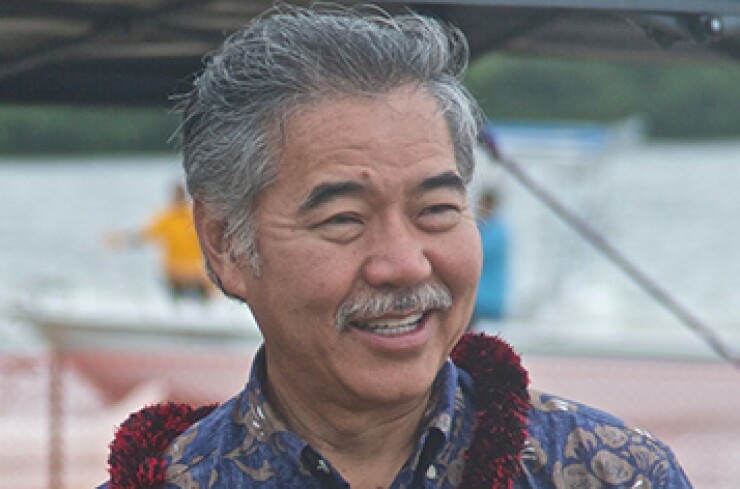
LOS ANGELES — The Hawaii House and Senate voted Wednesday to override the governor's veto of a Maui hospital bill designed to protect the benefits of laid off county hospital workers.
Hawaii Gov. David Ige argued in his veto that Senate Bill 2077 jeopardizes the tax-exempt status of the Employees Retirement System and he fears it could result in a bond downgrade.
The House and Senate acted on the bill during a special session convened on July 12.
"Our primary concern is and always has been the health and well-being of Maui's residents and visitors as we work to privatize Maui region hospitals," Ige said in a statement following the vote. "We are committed to a successful transfer and transition to a new Maui health care system for all stakeholders, which includes our employees."
However, this transaction must be done correctly for the common good, Ige said, adding the concerns expressed in his veto message have not changed.
The bill provides severance packages and retirement benefits to Maui County hospital workers who will lose their state jobs as three hospitals are transferred to Kaiser Permanente.
The majority of existing employees are being hired by Kaiser.
Lawmakers provided no funding for the benefits packages, raising questions about how it would be implemented.
When Ige vetoed the measure earlier this month, he said it was too expensive and could jeopardize the tax-exempt status of the Employees' Retirement System. He estimated the measure could cost the state more than $60 million.
The governor also said it does not appropriate funds for lump-sum cash payments for affected employees; and it adds an additional unfunded liability of about $17.2 million to the ERS and $18.4 million to the Employer Union Benefits Trust Fund.
The latter puts the state's long-term financial position, along with its bond ratings in jeopardy, Ige said. Bond ratings determine what the state pays in interest on borrowed funds, he said.
Ige said his next steps include conferring with the attorney general to assess and evaluate the impact of the veto override. He also said he will continue to work in good faith with the UPW to bring resolution to the federal court injunction and to finalize the details.
"We are close to an agreement," he said.
The Ige administration has been negotiating with the United Public Workers to resolve a lawsuit the union brought against the state alleging the privatization pursuit violates state contracts with the unions that are in effect until June 30, 2017. The 9th U.S. Circuit Court of Appeals in May issued an injunction in the lawsuit that temporarily halted the privatization effort.
The Hawaii Government Employees Association, which backed SB 2077, had also threatened to sue the state.
"This is an historic, complex multi-stakeholder transformation and we are optimistic that we will resolve all unforeseen issues," Ige said. "In the interim, I am confident that the existing Maui hospital staff and operations team will continue to provide quality health care services to the people of Maui."
The House voted 43 to 3 to override the governor's veto, securing the two-thirds majority necessary to overturn Ige's decision. The Senate vote was 18 to 4, narrowly securing the necessary 17 votes needed.
Ige signed an operations transfer agreement in January that allowed Kaiser Permanente to take control of three struggling Maui County Hospitals. The deal, which closed on June 30, represents the first such long-term management agreement involving a Hawaii state hospital.





